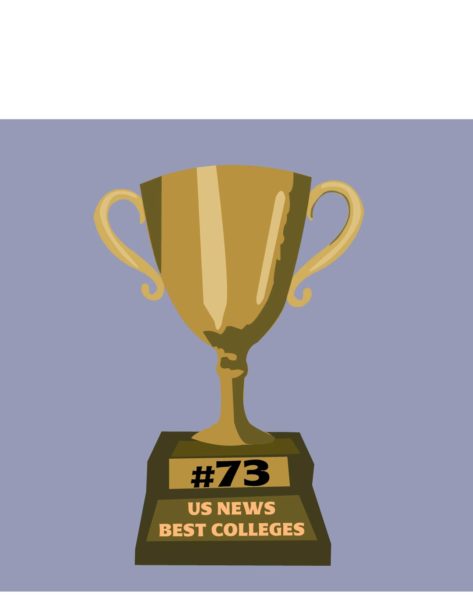
For decades, the U.S. News & World Report university rankings have been the standard — used by prospective students and employers alike. Though imperfect, the ranking system provided a uniform lens to compare universities and best evaluate performance, strengths and weaknesses. However, the massive change in methodology seemed to change rankings that universities held for years, causing U.S. News to lose significant credibility among the public.
Although most schools did not experience much change in the span of a year, the rankings reflected major fluctuations — with some public schools rising 50 places and private schools, such as Tulane University, dropping 29 ranks.
Notably, the University of California school system saw generous rank boosts for all schools: UCLA and UC Berkeley jumped from 20th and 21st to being tied at 15th, surpassing prestigious private schools such as Vanderbilt University. Additionally, UC Davis, previously ranked 38th, rose 10 spots in a year. On the flip side, highly respected private institutions, such as Wake Forest University and Brandeis University, previously ranked 29th and 44th, dropped to 47th and 60th, respectively.
The massive change in a short time span, along with a strong bias towards public schools, clearly demonstrate a blow to the reliability of U.S. News’s system. Despite Tulane no longer being a top 50 national university — falling short to traditionally lower-ranked state schools such as Stony Brook University and UC Merced — the rankings will have little impact on admission to graduate schools and finding employment; employers generally have experience and know which schools they like to hire from.
David Meyer, the former dean of Tulane Law School, expressed concern that U.S. News rankings “demonstrated little care for accuracy” in a statement explaining why Tulane Law, along with 40 other law schools, stopped providing information for rankings. Thus, a change in U.S. News’s view does not take away from the prestige and reputation of a school, although inaccurately dropping a school’s rank significantly hurts public perception of the school.
Prospective students may lose interest in Tulane because of the rank drop, and it could lead Tulane to see a significantly lower number of applicants next year.
But gradually, the public will likely place less emphasis on rankings. Decades of general knowledge of the quality and prestige of each school derived from recognized research and multiple sources will prevail.
Perception is primarily shaped by long term factors such as outcomes, validated through multiple sources over a greater period of time. For example, UC Merced, with an 87% acceptance and 69% graduation rate, is nowhere near academically robust as a school such as Brandeis, a much more selective midsize school — with a 39% acceptance rate and known academic rigor. Brandeis is a R1 research university while UC Merced is ranked R2. Despite striking differences, U.S. News has ranked these schools the same, at 60th.
In a joint statement from President Michael Fitts and Provost Robin Forman regarding the U.S. News, the rankings “[highlight] shortcomings of attempting to numerically rank universities with vastly different missions, sizes, locations, and student populations.” Revising the methodology to reflect fewer nuances in universities and creating a stronger bias towards public schools clearly indicates how flawed the U.S. News’s ranking system is.
In another statement referencing U.S. News, Fitts questioned whether rankings reflect the “best of both worlds now or the worst of all worlds now,” showing skepticism towards emphasizing certain criteria that hurt schools similar to Tulane, such as increasing factors like “first generation graduation rates” and decreasing factors such as “class size” and “alumni giving average.”
Though U.S. News is attempting to factor in accessibility, an important determinant in diversity, schools should not be unfairly punished by a major systemic change that puts accessibility in front of the quality of education. Smaller private institutions, impacted the most, should not have their strengths, such as in academics and alumni, overlooked in comparison to diversity factors of large public institutions.
No matter how universities respond, it is important that schools remain consistent with their goals and not make decisions in the name of chasing rankings. With the ever-growing criticism and doubt of the ranking system, it may be time for the public, along with various schools, to ultimately move on from the rankings game.






















Leave a Comment